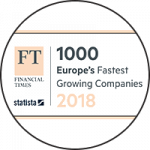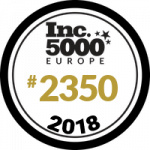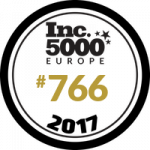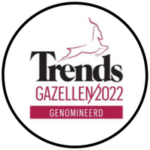Summary In the contemporary business environment, digital procurement is becoming increasingly popular and sought after by businesses around the world. The relationships …
How to maximise ROI with effective procurement and management strategies?
Why is maximising ROI critical for businesses and how does it impact the bottom line?
Effective procurement and management of supply chain risks can significantly enhance a company’s brand value, potentially by more than 70%. This underscores the substantial influence that well-implemented strategies can exert on a business’s financial stability. ROI serves as a crucial metric for assessing the profitability of an investment in relation to its cost. It measures the efficiency with which a company utilises its resources to generate returns, thereby acting as a fundamental indicator of investment performance.
For businesses, maximising ROI is essential as it has a direct impact on their financial outcomes. A high ROI indicates that investments are producing considerable returns in comparison to their costs, which can result in greater profitability and a competitive edge. Properly managed investments ensure that each dollar is effectively contributing to growth and enhancing shareholder value. Conversely, a low ROI may suggest inefficient use of resources and lost opportunities.
By prioritising ROI maximisation, companies can improve their financial results, align with strategic goals, and promote sustainable growth. Strategic procurement and management practices that focus on enhancing ROI not only boost operational efficiency but also fortify the company’s market presence and brand equity. Ultimately, optimising ROI is essential for achieving enduring success and sustaining a robust financial position.
What are the key strategies for maximising ROI?
Effective procurement planning
Procurement planning involves outlining the process for acquiring goods and services, ensuring alignment with organisational goals. A robust plan defines procurement needs, sets timelines, and establishes budgetary constraints. Tips for effective planning include conducting thorough market research, forecasting demand accurately, and setting clear objectives. A well-structured procurement plan minimises risks and enhances ROI by optimising resource allocation and ensuring timely, cost-effective acquisitions.
Supplier relationship management
Building strong supplier relationships is crucial for maximising ROI. Effective procurement and management foster trust, improve communication, and secure better terms. Strategies include conducting regular reviews, establishing clear contracts, and engaging in collaborative problem-solving. Effective negotiation techniques, such as understanding supplier needs and market data, lead to favourable agreements and cost savings. These practices contribute to enhanced ROI by ensuring value and efficiency in processes.
Cost management
Controlling and reducing procurement costs involves techniques such as bulk purchasing, negotiating discounts, and streamlining supply chains. Cost-benefit analysis is essential for evaluating the financial impact of procurement decisions, ensuring benefits outweigh costs. By applying these management techniques, businesses can achieve better value for money, lower overall expenses, and enhance ROI. Effective management of procurement costs improves financial efficiency and maximises returns on investment.
Data-driven decision making
Data-driven decision-making enhances procurement management by offering insights into spending patterns, supplier performance, and market trends. Analysing delivery times can improve supplier selection, while spend analysis reveals cost-saving opportunities. Leveraging these insights enables more informed decisions, leading to better procurement outcomes and increased ROI. By optimising efficiency and reducing costs, businesses can achieve greater financial returns and more strategic procurement management.
Technology integration
Technology integration in procurement through management software automates processes, improves accuracy, and provides real-time data. It streamlines workflows, reduces manual errors, and lowers operational costs. By incorporating advanced software solutions, companies can enhance efficiency, manage suppliers better, and achieve higher ROI levels through improved procurement effectiveness and optimised resource utilisation. This results in more effective operational management and greater financial returns.
Performance measurement and KPIs
Key Performance Indicators (KPIs) for procurement success include cost savings, supplier performance, and cycle time. Measuring ROI involves analysing these KPIs to assess the effectiveness of strategies. Regularly reviewing these metrics helps identify areas for improvement, align procurement activities with strategic goals, and enhance ROI by optimising processes and boosting overall performance. This approach ensures that procurement efforts contribute significantly to business success and financial returns.
Maximise ROI with effective procurement strategies with Kronos Group
Enhance your ROI by employing effective procurement strategies with Kronos Group. Our consulting services in procurement are designed to refine your procurement processes, strengthen supplier partnerships, and lower expenses. Utilising cutting-edge technologies and data-informed insights, we guarantee that each procurement choice boosts efficiency and adds value.
Our team of experts will collaborate with you to adopt best practices, elevate performance metrics, and realise substantial cost reductions. With the customised procurement consulting offered by Kronos Group, your organisation will not only improve ROI but also attain exceptional financial results and operational excellence.
Fighting the effects of inflation with sourcing and procurement consultants
Stay up-to-date on the latest insights on procurement, finance, and project management.
Summary Strategic procurement has become a necessity in today’s business world and organisations try to remain competitive. Having the right procurement strategies …
Summary The world of consulting has been undergoing a massive transformation and management consulting jobs are experiencing the impacts of these changes. …
FAQ
Procurement management software automates processes, improves visibility, and reduces errors, ultimately lowering costs and improving efficiency, leading to higher ROI.
Controlling procurement costs through budget monitoring, cost-benefit analysis, and negotiation strategies helps organisations maximise returns and avoid unnecessary expenses.
Continuous improvement can be achieved by regularly reviewing procurement processes, updating strategies based on performance metrics, and adopting the latest technologies for enhanced efficiency.
The 7 stages of procurement are:
- Need identification: Determine what is required.
- Specification development: Define detailed requirements.
- Supplier sourcing: Find potential suppliers.
- Request for proposal (RFP)/Request for quotation (RFQ): Solicit bids.
- Supplier evaluation and selection: Assess and choose suppliers.
- Contract negotiation and award: Finalize terms and agreements.
- Order fulfilment and performance review: Manage delivery and evaluate performance.














